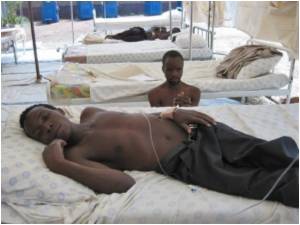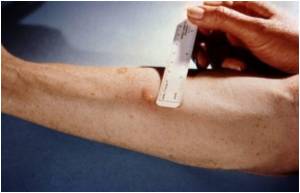Using a technique known as a genome-wide association (GWA) study, scientists have identified a genetic variant which increases susceptibility to tuberculosis (TB) in African populations.

So far, over 150 different studies have successfully identified genetic variants using this technique, but the vast majority - between 95-98 percent - have been only in people of European ancestry.
Researchers carried out a GWA study, and replicated their findings, using over 11,000 samples - 3,699 cases and 7,726 controls - from Ghana, The Gambia and Malawi as part of the African TB Genetics and the Consortium Wellcome Trust Case Control Consortium in search of genetic variants that increase susceptibility to TB.
Fredrik Vannberg of University of Oxford said: "Our challenges here were two-fold. We were looking for human genetic variants affecting susceptibility to a pathogen which itself differs genetically from region-to-region, and we were searching for these variants in African populations, which are genetically very diverse."
The researchers identified a genetic variant on chromosome 18, located in a 'gene desert', a region composed mainly of so-called 'junk DNA', which suggested that the variant itself was not a gene, but was possibly involved in gene regulation.
Professor Adrian Hill explained: "Although we know of other genetic variants which increase susceptibility to TB, this is the first to have been identified using a genome-wide association study. This is very important as it demonstrates that we can do these studies - which have been so successful in European populations - in African populations, which suffer the greatest burden from infectious diseases."
Advertisement
"This is a very important milestone in reducing the inequity that currently exists in the use of genome-wide approaches, including GWA studies, to understand the genetic basis of diseases that disproportionately affect African people," said Dr Charles Rotimi of the National Human Genome Research Institute.
Advertisement
The results of the study were published today in the journal Nature Genetics.
Source-ANI













